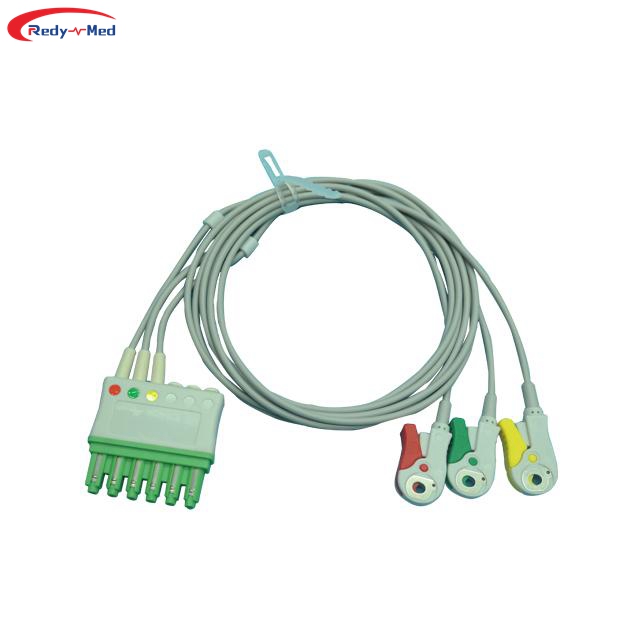
How long are ECG leads valid after they are turned on?
2024-03-21 00:04:44
Understanding the Lifespan of ECG Leads

ECG (Electrocardiogram) leads are an indispensable tool used to monitor the electrical activity of the heart. They provide crucial information about the heart's functioning by recording the electrical signals generated during each heartbeat. However, it is essential to understand how long ECG leads remain valid and reliable after they are activated.
The Initial Period: Stabilization and Settling
Once the ECG leads are turned on, it is crucial to allow them to stabilize and settle before obtaining accurate results. This initial period typically lasts for a few minutes, during which the leads establish optimal contact with the skin. It is recommended to wait at least 5 minutes before recording the first ECG to ensure reliable data collection.
Long-Term Validity: Factors Influencing ECG Lead Lifespan
The validity of ECG leads is affected by multiple factors, including their quality, usage, maintenance, and patient-specific characteristics. Here are some essential factors that influence the lifespan of ECG leads:
- Quality: High-quality leads are designed to withstand daily usage and provide reliable results over an extended period. It is crucial to invest in leads from reputable manufacturers to ensure optimal accuracy.
- Usage: The frequency and duration of using ECG leads can impact their longevity. Regular usage may cause wear and tear, affecting their signal transmission capacity. It is advisable to follow manufacturer guidelines regarding the maximum recommended usage duration.
- Maintenance: Proper care and maintenance play a significant role in prolonging the validity of ECG leads. Regular cleaning, storage in suitable conditions, and timely replacement of worn-out leads are essential for consistent accuracy.
- Patient-specific characteristics: Certain factors like excessive perspiration, oily skin, or excessive body hair can affect the conduction capability of ECG leads. In such cases, leads might require more frequent replacement to ensure optimal signal quality.
Replacing ECG Leads: When is it Necessary?
While there is no specific time limit for the validity of ECG leads, regular replacement is advised to maintain accurate results. Here are some indicators that signal the need to replace ECG leads:
- The leads show visible signs of wear and tear, such as fraying or loss of insulation.
- Intermittent or inconsistent signal quality is observed during recordings.
- Patient discomfort or skin irritation is experienced due to prolonged usage.
- Leads fail to adhere properly to the skin, leading to poor contact.
It is crucial to closely monitor the condition of ECG leads during regular use and replace them promptly as per the manufacturer's recommendations or when any of the above indicators are observed.
ECG leads remain valid as long as they are properly maintained, regularly cleaned, and show no signs of wear and tear. While there isn't a fixed duration for their validity, ensuring optimal contact, signal transmission, and patient comfort play key roles in obtaining reliable ECG readings. By understanding the factors influencing their reliability and following appropriate maintenance protocols, healthcare professionals can enhance the overall accuracy and effectiveness of ECG monitoring.
Get the latest price? We'll respond as soon as possible(within 12 hours)




